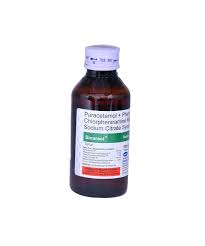tvaptan
Introduction to tvaptan
Tvaptan, known by its brand name Tolvaptan, is primarily used in tablet form to treat specific medical conditions. Tvaptan is utilized to manage hyponatremia, which involves low sodium levels in the blood, and autosomal dominant polycystic kidney disease, a genetic disorder causing kidney cysts.
Composition of tvaptan
Tvaptan's active ingredient is Tolvaptan, which functions by blocking the hormone vasopressin. This action helps regulate water balance in the body, increasing sodium levels and slowing the growth of kidney cysts.
Uses of tvaptan
- Treatment of hyponatremia (low sodium levels in the blood)
- Management of autosomal dominant polycystic kidney disease
Side effects of tvaptan
- Common side effects: increased thirst, dry mouth, and frequent urination
- Serious side effects: potential liver problems requiring regular liver function tests
Precautions of tvaptan
Tvaptan may cause severe liver issues, so regular liver tests are necessary. It is not recommended for individuals with liver problems or during pregnancy. Avoid alcohol and grapefruit juice while taking this medication.
How to Take tvaptan
Tvaptan is generally taken as a tablet, twice daily, on an empty stomach. The initial dose is typically 15 mg, with a maximum of 60 mg twice daily, as adjusted by your doctor. Follow your healthcare provider's instructions for the correct dosage and administration.
Conclusion of tvaptan
Tvaptan, with its active ingredient Tolvaptan, belongs to the therapeutic class of vasopressin antagonists. It is primarily used to treat hyponatremia and autosomal dominant polycystic kidney disease. Regular monitoring and adherence to medical advice are crucial for safe and effective use. Tvaptan is manufactured by various pharmaceutical companies, ensuring its availability for those in need.

Similar Medicines
More medicines by Centaur Pharmaceuticals Pvt Ltd
Available in 2 variations

strip of 4 tablets

strip of 4 tablets
Disclaimer : This information is not a substitute for medical advice. Consult your healthcare provider before making any changes to your treatment . Do not ignore or delay professional medical advice based on anything you have seen or read on Medwiki.
tvaptan
Prescription Required
Manufacturer :
Centaur Pharmaceuticals Pvt LtdComposition :
tolvaptan











.svg)
